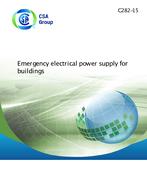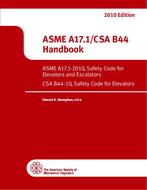Preface
This is the second edition of CSA Z1600, Emergency and continuity management program. It supersedes the previous edition published in 2008 under the title, Emergency management and business continuity programs. This Standard continues to provide requirements for a continual improvement process to develop, implement, maintain, and evaluate an emergency and continuity management program that addresses the functions of prevention and mitigation, preparedness, response, and recovery. This edition is also intended to move organizations toward the objective of resilience – an emerging broader concept that considers the political, economic, social, human, and cultural aspects of society. Canadian public and private sector stakeholders have an interest in ensuring that emergency and continuity management systems evolve to be consistent and have the potential to be international in scope and application. The development of the first edition standard was written to be consistent with the Government of Canada’s An Emergency Management Framework for Canada, and this continues in the second edition. The first edition, initially adapted from NFPA 1600, Standard on Disaster/Emergency Management and Business Continuity Programs, 2007, grew out of the strong commitment of both CSA Group and NFPA to work collaboratively to promote awareness, knowledge, and application of Standards and industry best practices in the community and the workplace. This edition also reflects Canada’s participation in the ongoing work of emergency and continuity management-related standards under the umbrella of the International Organization for Standardization (ISO) including ISO/TC 223 – Societal Security.
Scope, purpose, and application
1.1 Scope This Standard establishes criteria for an emergency and continuity management program, hereinafter referred to as “the program.” 1.2 Purpose 1.2.1 General This Standard provides the requirements to develop, implement, evaluate, maintain, and continuously improve an emergency and continuity management program for prevention and mitigation, preparedness, response, and recovery. 1.2.2 Continual improvement process The elements of a continual improvement process included in this Standard are a) program management; b) planning; c) implementation; d) program evaluation; and e) management review. 1.3 Application This Standard applies to public and private organizations. 1.4 Terminology In this Standard, “shall” is used to express a requirement, i.e., a provision that the user is obliged to satisfy in order to comply with the standard; “should” is used to express a recommendation or that which is advised but not required; and “may” is used to express an option or that which is permissible within the limits of the standard. Notes accompanying clauses do not include requirements or alternative requirements; the purpose of a note accompanying a clause is to separate from the text explanatory or informative material. Notes to tables and figures are considered part of the table or figure and may be written as requirements. Annexes are designated normative (mandatory) or informative (nonmandatory) to define their application.
Product Details
- Edition:
- 2nd
- Published:
- 01/01/2014
- ISBN(s):
- 9781771393140
- Number of Pages:
- 83
- File Size:
- 1 file , 1.6 MB
- Product Code(s):
- 2422693, 2423097, 2422693


